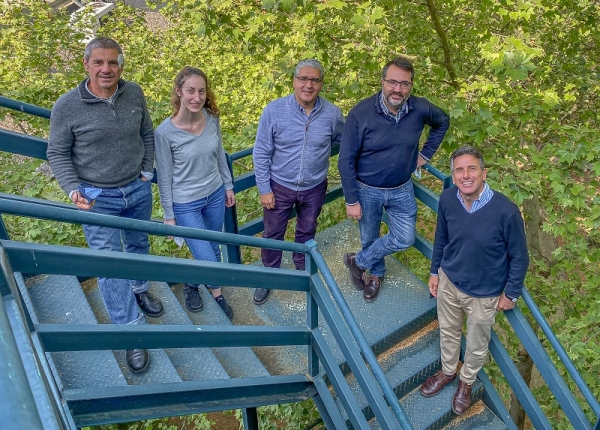Approximately 50% of the world's homes are supplied by groundwater, and 11% of the world's food production is irrigated with water from overexploited aquifers. More water is being extracted than produced and recharged naturally. Specifically, the Mediterranean Basin is one of those at the highest risk of a food crisis due to climate change and human action.
Along this line the GOTHAM project came about, which is part of PRIMA MED, the Partnership for Research and Innovation in the Mediterranean Area, with the main purpose of developing knowledge and technologies that improve the provisioning and integrated management of water in the Mediterranean area.
The main aim of the project is to develop a modelling of farmers' demand for water in an effort to optimize their resources and predict their behaviour through the new "Gtool" tested in rural areas of Dalías (Almería), Baalbeck-Hermel (Lebanon) and the Zarqa Basin (Jordan).The idea is to have a system that predicts the demand for water for the following year, and be able to anticipate the problem. To achieve this, “the new tool works based on governance, a broad concept that includes the installation of ‘hardware’, such as sensors, meters and counters, and ‘software’: the regulations, culture and laws, everything that makes us capable of governing a resource like water”, explained Julio Berbel, professor of Agrarian Economics at the University of Cordoba and project coordinator.
GOTHAM's objectives include carrying out a complete analysis and diagnosis of the water balance and the dynamics of the quality and quantity of groundwater, looking for the best alternatives to improve them. In this regard, the project examines the feasibility and potential benefits of the combined use of resources (surface, underground and unconventional), and others such as the Managed Aquifer Recharge (a technique known as “MAR”). Likewise, their sustainable management is studied through the application of effective economic policy measures.
Aquifer overexploitation is close to 300% in Jordan. The needs of alfalfa farmers in this region, who, verging on poverty, produce more than the land can bear; and the complexity of obtaining data due to the impediments caused by the pandemic, are some of the problems that have arisen since the beginning of the project. Despite these obstacles, the results obtained to date are proving positive, like the case of the Dalías field model in Almería, yielding this modelling of farmers' demand for water.
Participation in the European GOTHAM project has furnished the UCO with a form of financing to do quality work, obtain resources, and establish a network of contacts and knowledge, as well as work with other leading teams in the field.
More information in: https://www.gotham-prima.eu/index.php/es/home-espanol/
The GOTHAM project - “Governance tool for sustainable water resources allocation in the Mediterranean” (PRIMA-S1-2019-GOTHAM) is funded by the European Union through the PRIMA-S1-2019 call.
"This report is part of the project “CONSOLIDA-UCO ECT2020-000810", funded by MCIN/AEI/10.13039/501100011033 and by European Union “NextGenerationEU”/PRTR”.


